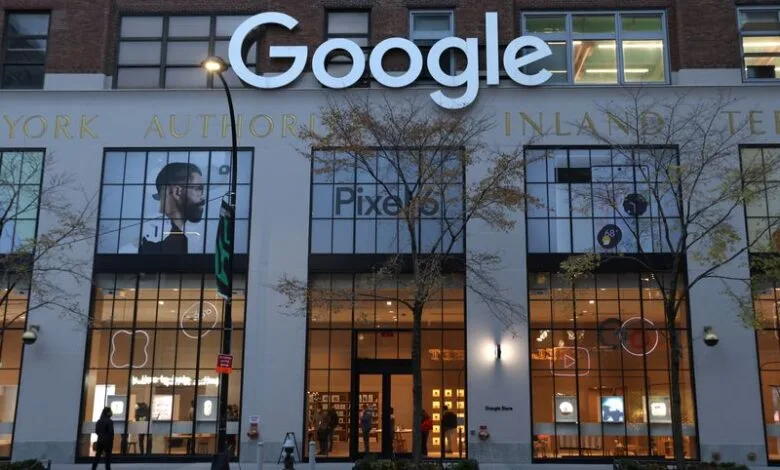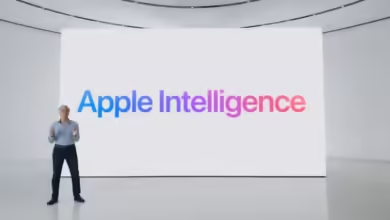“Google’s AI-Fueled Gains in Cloud: What It Means for Rivals Amazon and Microsoft”

Google is making tremendous achievements in the cloud industry, at a time when artificial intelligence is altering business landscapes. Google Cloud Platform (GCP) increased significantly thanks to breakthroughs spurred by AI innovations. These artificial intelligence (AI)-driven advantages have a big influence on rivals Microsoft Azure and Amazon Web Services (AWS) in addition to Google. Here’s a look at Google’s latest developments, the cloud market’s competitive landscape, and why this AI increase is significant for the sector as a whole.
Table of Contents
Google’s Strategic Shift: Leveraging AI in Cloud Services
As among the top 3 providers of cloud services, Google is relying on AI skills to increase market share while enhancing its cloud services. Google’s solid foundation in artificial intelligence (AI) and machine learning (ML) allowed them to create breakthroughs in cloud-based artificial intelligence (AI) offerings such as Vertex AI, BigQuery ML, and generative artificial intelligence (AI) tools, making it appealing to clients looking for sophisticated analytics and automation. These AI-powered technologies enable businesses to forecast trends, manage massive data, and automate operations, attracting a rising customer base seeking AI-driven solutions.
Google CEO Sundar Pichai recently stressed the importance of artificial intelligence in the expansion of Google Cloud. In addition to providing infrastructure, he pointed out that Google’s goal is to provide businesses with the newest intelligent technology, which improves digital transformation, productivity, and decision-making.
Numbers Reflect Growth: Google Cloud Gains Market Share
The most recent financial reports show a huge growth in Google Cloud’s revenue. GCP recorded a 22% revenue rise in the third quarter of 2024, indicating strong demand and expanding adoption of Google’s cloud offerings. Notably, Google’s operating profits increased as well, demonstrating the effectiveness of AI technology in streamlining their cloud services and infrastructure.
Although Google Cloud has a smaller market share than AWS and Microsoft Azure, its growth trajectory indicates the company’s ability to differentiate itself through AI. Customers from industries including retail, healthcare, and finance have begun to gravitate toward Google’s AI technologies due to the platform’s exclusive automation features and potential for deep data insights.
How Google’s Gains Affect AWS and Azure
While AWS & Microsoft Azure stay at the forefront of the cloud industry, Google’s recent AI-driven surge has compelled both firms to develop and refine their products in order to remain competitive. AWS, for example, has increased its AI tool set, with a special emphasis on machine learning as well as predictive analytics, in order to compete with Google’s advances. Meanwhile, Microsoft has further integrated AI into Azure through Microsoft Copilot, an artificial intelligence (AI) assistant that works over Azure products & Microsoft 365 apps.
Every business is becoming more conscious of how artificial intelligence (AI) and machine learning might transform the cloud industry, and as Google keeps expanding, AWS and Azure will probably improve their ability to use AI to draw in and keep users. By doing so, these three firms ensure that cloud services become progressively infused with AI features, positioning the cloud sector as a critical market for AI innovation.
Why AI Matters in Cloud Competition
Artificial intelligence is becoming a critical component of cloud service offerings, rather than just a technological fad. Cloud companies are transitioning from basic storage and processing to highly specialized AI-powered offerings. Cloud providers who can deliver the best AI-powered choices have a significant competitive advantage as businesses look for these cutting-edge tools.
Google’s AI-powered tools position it as an appealing alternative for businesses trying to streamline complicated operations, automate repetitive jobs, and forecast trends using data. Google’s ability to stay ahead in AI has the potential to alter the cloud industry’s balance, pushing AWS & Microsoft Azure to innovate consistently.

This emphasis on artificial intelligence (AI) in cloud services benefits clients since it encourages providers to develop better, quicker solutions. Companies are expected to benefit in the long run from upgraded goods that streamline corporate operations, increase customer experience, and open up new, innovative possibilities thanks to AI.
The Road Ahead for Google, Amazon, and Microsoft
The incorporation of AI into cloud services signals a long-term transformation in the industry. Google’s progress with AI-powered cloud services may have long-term ramifications for its competitors and herald a bigger shift in the cloud industry. Google may become a leader in AI-powered cloud services and pose new threats to AWS and Azure if it keeps up its progress.
Companies may choose multi-cloud solutions in the future since they give them flexibility and a competitive edge by enabling them to utilize the unique AI-driven capabilities that each provider offers. This move could result in a more diverse cloud market, with Google, Amazon, & Microsoft each playing distinct roles according to their capabilities in AI applications.
A New Era for Cloud Computing
The industry as a whole stand to gain from faster innovation as Google keeps using AI to support its cloud services. More than merely a success story, Google’s advancements in incorporating artificial intelligence into its cloud service provide insight into the direction that cloud computing is taking. As Amazon and Microsoft reciprocate, the competition is expected to result in improved AI-powered services and a more resilient cloud ecosystem.
This rivalry for cloud computing fueled by AI is a good thing for companies all over the world. The continuous competition in powered by AI cloud technology is laying the groundwork for a more intelligent and effective future by bringing forth superior data analytics and increased productivity. As these tech behemoths push the limits of what is feasible in cloud computing, the customers eventually benefit regardless of who takes the lead—Google, Amazon, or Microsoft.
People also Reading
ByteDance Founder Surges to Top of China’s Rich List: How TikTok’s Success Drives New Wealth
AI in Action: Discover How Artificial Intelligence Enriches Daily Experiences
World’s First Starlink-Equipped Flight by Qatar Airways: A Game Changer in Air Travel
US-China Tech War: Escalation Expected Regardless of Trump or Harris Victory




